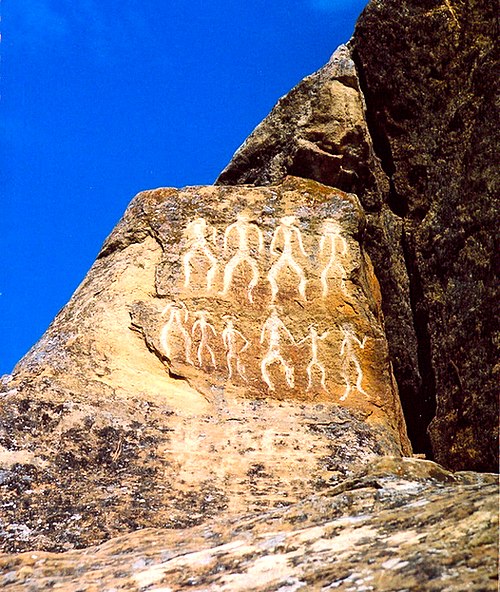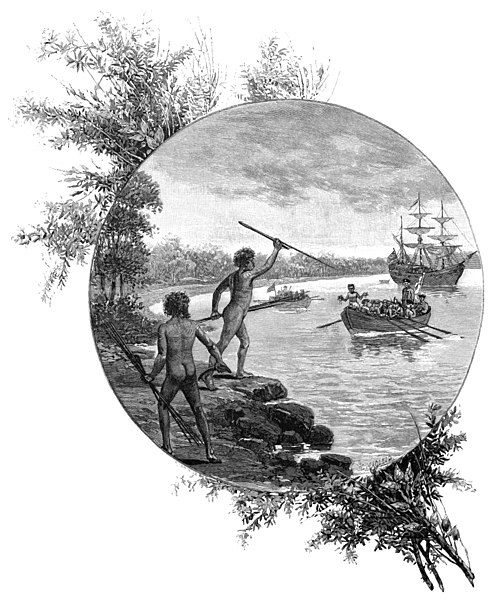Traditionnoun
A part of culture that is passed from person to person or generation to generation, possibly differing in detail from family to family, such as the way to celebrate holidays.
Traditionnoun
A commonly held system. en
Traditionnoun
The act of delivering into the hands of another; delivery.
Traditionverb
(obsolete) To transmit by way of tradition; to hand down.
Traditionnoun
The act of delivering into the hands of another; delivery.
Traditionnoun
The unwritten or oral delivery of information, opinions, doctrines, practices, rites, and customs, from father to son, or from ancestors to posterity; the transmission of any knowledge, opinions, or practice, from forefathers to descendants by oral communication, without written memorials.
Traditionnoun
Hence, that which is transmitted orally from father to son, or from ancestors to posterity; knowledge or belief transmitted without the aid of written memorials; custom or practice long observed.
Traditionnoun
An unwritten code of law represented to have been given by God to Moses on Sinai.
Traditionnoun
That body of doctrine and discipline, or any article thereof, supposed to have been put forth by Christ or his apostles, and not committed to writing.
Traditionverb
To transmit by way of tradition; to hand down.
Traditionnoun
an inherited pattern of thought or action
Traditionnoun
a specific practice of long standing
Tradition
A tradition is a belief or behavior (folk custom) passed down within a group or society with symbolic meaning or special significance with origins in the past. A component of folklore, common examples include holidays or impractical but socially meaningful clothes (like lawyers' wigs or military officers' spurs), but the idea has also been applied to social norms such as greetings.
Culturenoun
the arts, customs, lifestyles, background, and habits that characterize a particular society or nation
Culturenoun
the beliefs, values, behaviour and material objects that constitute a people's way of life
Culturenoun
(anthropology) any knowledge passed from one generation to the next, not necessarily with respect to human beings
Culturenoun
(botany) cultivation
Culturenoun
(microbiology) the process of growing a bacterial or other biological entity in an artificial medium
Culturenoun
the growth thus produced
Culturenoun
the collective noun for a group of bacteria
Culturenoun
(cartography) the details on a map that do not represent natural features of the area delineated, such as names and the symbols for towns, roads, meridians, and parallels
Cultureverb
(transitive) to maintain in an environment suitable for growth especially of bacteria cultivate}}
Cultureverb
(transitive) to increase the artistic or scientific interest in something cultivate}}
Culturenoun
The act or practice of cultivating, or of preparing the earth for seed and raising crops by tillage; as, the culture of the soil.
Culturenoun
The act of, or any labor or means employed for, training, disciplining, or refining the moral and intellectual nature of man; as, the culture of the mind.
Culturenoun
The state of being cultivated; result of cultivation; physical improvement; enlightenment and discipline acquired by mental and moral training; civilization; refinement in manners and taste.
Culturenoun
The cultivation of bacteria or other organisms (such as fungi or eukaryotic cells from mulitcellular organisms) in artificial media or under artificial conditions.
Culturenoun
Those details of a map, collectively, which do not represent natural features of the area delineated, as names and the symbols for towns, roads, houses, bridges, meridians, and parallels.
Cultureverb
To cultivate; to educate.
Culturenoun
a particular society at a particular time and place;
Culturenoun
the tastes in art and manners that are favored by a social group
Culturenoun
all the knowledge and values shared by a society
Culturenoun
(biology) the growing of microorganisms in a nutrient medium (such as gelatin or agar);
Culturenoun
(bacteriology) the product of cultivating micro-organisms in a nutrient medium
Culturenoun
a highly developed state of perfection; having a flawless or impeccable quality;
Culturenoun
the attitudes and behavior that are characteristic of a particular social group or organization;
Culturenoun
the raising of plants or animals;
Culture
Culture () is an umbrella term which encompasses the social behavior and norms found in human societies, as well as the knowledge, beliefs, arts, laws, customs, capabilities, and habits of the individuals in these groups.Humans acquire culture through the learning processes of enculturation and socialization, which is shown by the diversity of cultures across societies. A cultural norm codifies acceptable conduct in society; it serves as a guideline for behavior, dress, language, and demeanor in a situation, which serves as a template for expectations in a social group.



















